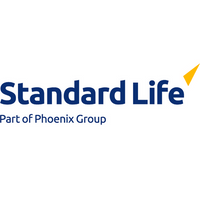How to help employees balance their retirement income needs
When approaching retirement, many people are faced with a big decision: how do they take their pension savings in a way that’s right for them?
With a range of confusing options to choose from, people are finding it hard to make a decision.
Seven out of ten people (71%) want help deciding how to take their pension, including being guided by their pension scheme to a ready-made retirement income option, according to PLSA research from 2020.
Furthermore, there’s a clear appetite for both flexibility and security in retirement.
Insights from Standard Life’s Retirement Voice 2024 report reveal that 80% of people want the freedom to flexibly access their money, and 90% want the security of a guaranteed income.
Supporting members in their decision-making and towards better retirement outcomes was a key area of focus at a recent roundtable event.
Attended by experts from across the industry, including Standard Life’s Esther Hawley, head of retirement proposition and Garry Latimer, investment business development manager, the roundtable covered a lot of ground and sparked debate about the unique role that workplace schemes can play.
Top three tips from roundtable:
1. Balancing security and flexibility
When it comes to taking their retirement income, we know that the majority of people are looking for a secure income alongside flexible access to savings.
The challenge of balancing security and flexibility was a key focus of the roundtable.
Attendees discussed the need for retirees to evaluate their personal circumstances when retirement planning, to ensure their income will meet their essential costs.
Building on this, attendees questioned if there should be a threshold for accessing structured retirement solutions or if even a small guaranteed income, such as £1,000 a year at age 85, could be valuable.
It was pointed out that there shouldn’t be a strict threshold, as people’s retirement needs are highly individual.
Instead, it would be better to have a more adjustable framework that factors in variables such as household needs, partner circumstances, and health changes.
Attendees concluded that the best retirement strategies will balance secure income and flexible access, tailored to pot size.
Smaller pots, for example, may rely more on the state pension to cover everyday expenses, plus drawdown.
Meanwhile, those with larger pensions may benefit from a mix of annuities and drawdown.
2. Redefining decumulation
Roundtable discussions centred on the importance of redefining decumulation, particularly as today’s working population has greater reliance on defined contribution (DC) pensions.
Attendees acknowledged the complex challenges of decumulation and the difficulties of developing an optimised solution for how retirees can take their pension savings.
Indeed, people’s lives are complex and varied – from differing pension pot sizes, individual circumstances, and personal goals – making it difficult to create a one-size-fits-all approach.
But workplace schemes are in a unique position to lead the way in developing a solution that provides potentially better outcomes for retirees.
One of the key advantages workplace schemes have is institutional pricing and scale.
This can offer flexibility and competitive charges, as well as increased innovation, and ultimately provide members with better financial outcomes – all while maintaining control over governance and investment strategy.
3. Supporting and educating members
Another theme that arose was the need to support and educate members in their retirement planning.
Various approaches were discussed, including new online tools that are entering the market and aim to help members in their decision-making.
This includes Standard Life’s new Mixed Income Builder tool, which helps members understand how they can get that balance right between security and flexibility when taking their pension savings.
It shows them how they can use some of their money to secure a guaranteed income for life by purchasing an annuity, and then take the rest flexibly through drawdown whenever they want among other functions.
Another talking point was member education, particularly around the differences between using retail products vs. workplace schemes for taking their retirement savings.
It was noted that some DC savers were moving their pensions from low-cost workplace schemes to more expensive retail products, with many unaware of the consequences.
This emphasises the growing need for clearer guidance and education, so that retirees can better understand the value of their existing schemes before making costly decisions.
Ultimately, all agreed that the industry has a responsibility to ensure that members are properly informed, to prevent them from walking into complex decisions that could leave them worse off – and risk undoing all the good done during accumulation at retirement.
Further details: Visit Standard Life’s website to get all the insights and download the full write-up.
Supplied by REBA Associate Member, Standard Life
Standard Life are part of Phoenix Group, the UK’s largest long-term savings and retirement business. We both share an aligned ambition to help every customer enjoy a life full of possibilities.








